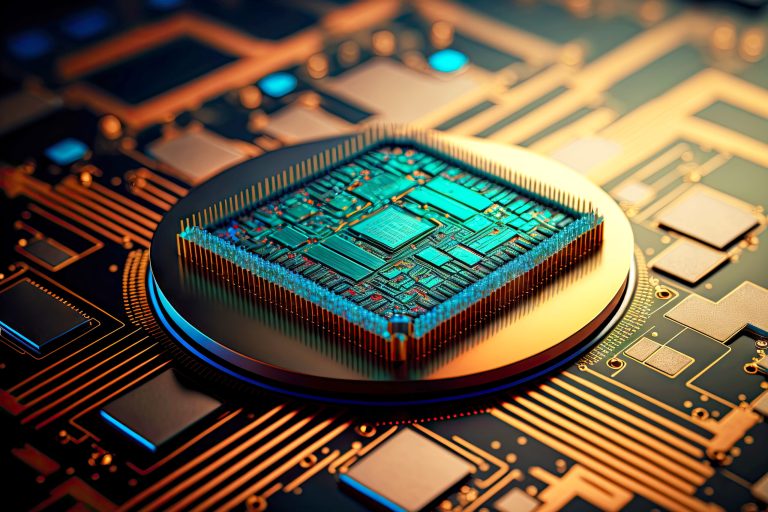In a recent interview on The Joe Rogan Experience, former President Donald Trump reignited a contentious debate by claiming that Taiwan had “stolen” America’s semiconductor industry.
Trump’s remarks echo previous accusations he’s made, asserting that Taiwan has taken control of a technology crucial to the US economy.
However, experts argue that Taiwan’s dominance in semiconductor manufacturing isn’t the result of theft but rather an innovative business model and decades of investment.
As the 2024 US presidential race intensifies, the focus on Taiwan’s semiconductor industry—led by Taiwan Semiconductor Manufacturing Company (TSMC)—raises questions about what Trump’s potential return to office could mean for the global chip sector.
Trump’s perspective: tariffs and ‘protection fees’
Trump’s comments reflect his concerns about American reliance on Taiwan’s semiconductor output.
During the interview, he criticized the CHIPS Act, suggesting that US funds should not be used to benefit foreign firms setting up plants domestically.
If re-elected, Trump proposed enacting tariffs on Taiwanese chips, specifically those from TSMC, which manufactures chips for tech giants like Apple and Nvidia.
He even suggested that Taiwan should pay the US for its defense, a notion Taiwan’s officials dismissed as an unwelcome “protection fee,” according to CNN.
TSMC shares dropped by 4.3% in response, highlighting market sensitivities to geopolitical tensions.
Taiwan’s semiconductor success
Experts counter Trump’s accusations, emphasizing that Taiwan’s semiconductor industry emerged through foresight and strategic planning rather than “stealing” American technology.
TSMC, established by Morris Chang in 1987, pioneered a “pure-play foundry” model.
Instead of designing its chips, TSMC focused exclusively on manufacturing for other companies—a novel approach at the time.
This allowed TSMC to scale production, attract clients across sectors, and become a linchpin in the global semiconductor supply chain.
“TSMC’s success stems from a focus on manufacturing excellence and economies of scale, not from taking anything from the US,” Christopher Miller, author of Chip War: The Fight for the World’s Most Critical Technology, was quoted as saying by CNN.
This manufacturing-focused approach, paired with Taiwan’s ecosystem of skilled engineers, has made it the world’s leading supplier of advanced chips, producing over 90% of global output, according to the Semiconductor Industry Association.
Attempts by Intel and Samsung to replicate TSMC’s foundry model underscore how Taiwan’s semiconductor rise was organic, not opportunistic.
Why US companies depend on TSMC
Despite Trump’s criticism, US technology giants like Amazon, Microsoft, and Google deeply rely on TSMC’s advanced manufacturing.
The threat of a potential conflict between China and Taiwan has heightened US interest in reducing this dependency, leading to initiatives like the CHIPS Act, signed by President Joe Biden in 2022, aimed at boosting US chip production.
However, building a domestic semiconductor manufacturing base is no simple task; Intel and other companies face high costs, labor shortages, and regulatory challenges in the US, highlighting the complexities of Trump’s push to bring chip manufacturing home.
For TSMC, expanding into the US also presents challenges.
The company is constructing three Arizona facilities but has encountered delays tied to differences in work culture and labor regulations.
“TSMC must adapt its operations to fit the local culture and labor systems if it truly wants to become a global company,” said former TSMC R&D director Konrad Young, per CNN.
US-Taiwan chip dilemma
If Trump were to impose tariffs on Taiwanese semiconductors, it could complicate supply chains and raise costs across the tech sector.
Citi analysts noted that tariffs would involve extensive audits, given the complex composition of chips in electronic devices.
History suggests that a trade dispute could prompt retaliation from China, as seen when Beijing restricted American chipmaker Micron’s access to the Chinese market during earlier tensions.
On the other hand, a Trump presidency could favor American chip manufacturers like Intel and Texas Instruments, potentially reshaping the industry’s competitive landscape.
As the US grapples with securing its chip supply, Taiwan’s role remains indispensable.
Trump’s comments underscore the challenges of reducing dependence on foreign chipmakers while balancing geopolitical considerations.
Meanwhile, TSMC’s influence in the global tech landscape continues to grow.
However, as Konrad Young suggests, the key to any successful expansion will lie in cooperation rather than competition, fostering an environment where both US and Taiwanese firms can thrive for a sustainable semiconductor future.
In the broader debate, Taiwan’s path to semiconductor dominance illustrates a strategic model that rivals seek to emulate rather than replace.
While Trump’s claims make headlines, industry experts agree: Taiwan didn’t steal America’s chip industry—it built one that has become the envy of the world.
The post Did Taiwan really ‘steal’ the US chip industry as Trump claims? appeared first on Invezz

